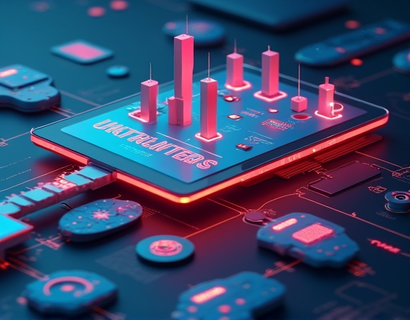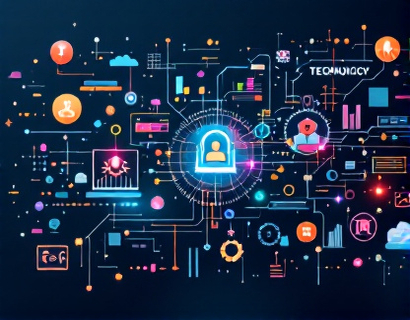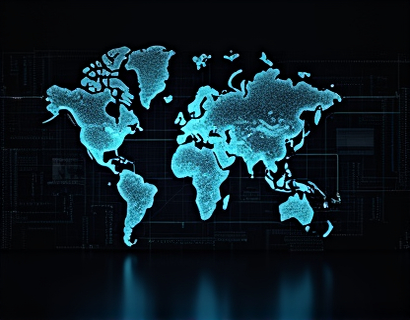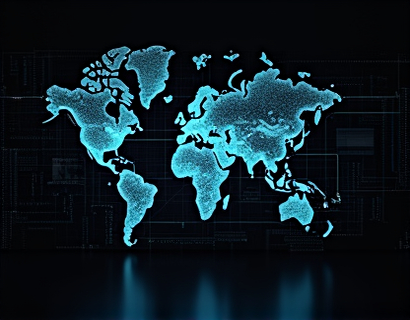Decentralized DAO Launch: Streamlining Autonomous Venture Creation with Advanced Tools and Resources
The emergence of Decentralized Autonomous Organizations (DAOs) represents a paradigm shift in the way businesses and ventures are created and managed. By leveraging blockchain technology and smart contracts, DAOs offer a novel approach to governance, ownership, and operation, enabling a more decentralized and transparent structure. However, the process of launching and managing a DAO can be complex and daunting, involving numerous technical, legal, and strategic considerations. To address these challenges, an advanced platform has been developed to streamline the creation and management of DAOs and autonomous ventures, providing a comprehensive toolkit for seamless integration and operation.
This platform is designed to empower businesses and entrepreneurs to innovate and lead in the decentralized space. It offers a suite of advanced tools and resources that simplify the startup process, ensuring that even those with limited technical expertise can successfully launch and manage a DAO. The platform's primary goal is to demystify the complexities associated with DAOs, making it accessible and feasible for a broader range of entities to participate in the decentralized economy.
Key Features of the Platform
The platform provides a robust framework for the entire lifecycle of a DAO, from initial setup to ongoing management. Here are some of the key features that make this platform an indispensable resource for anyone looking to venture into the decentralized space:
- Template-Based Setup: The platform offers pre-built templates for various types of DAOs, including governance, investment, and community-driven models. These templates serve as a starting point, reducing the time and effort required to set up a DAO from scratch.
- Smart Contract Generation:
- Governance Tools:
- Resource Management:
- Integration Capabilities:
- Compliance and Legal Support:
Automated smart contract generation is a critical feature, ensuring that the foundational rules and regulations of the DAO are correctly implemented. The platform supports multiple blockchain platforms, allowing users to choose the most suitable one for their needs.
Effective governance is essential for the success of any DAO. The platform includes tools for proposal and voting systems, ensuring that decision-making processes are transparent and democratic. These tools facilitate community engagement and participation, fostering a collaborative environment.
Managing resources efficiently is crucial for the sustainability of a DAO. The platform provides tools for tracking and allocating tokens, managing funds, and overseeing project milestones. This ensures that resources are used effectively and in alignment with the DAO's goals.
The platform is designed to integrate seamlessly with existing tools and services, such as wallet providers, decentralized exchanges, and other blockchain applications. This interoperability enhances the functionality and usability of the DAO, allowing for a more cohesive and efficient ecosystem.
Navigating the legal landscape of DAOs can be challenging. The platform offers resources and guidance to help users understand and comply with relevant regulations, reducing the risk of legal issues and ensuring a smoother operation.
Benefits of Using the Platform
The advantages of using this platform for launching and managing a DAO are numerous. Here are some of the key benefits:
Firstly, the platform significantly reduces the time and cost associated with setting up a DAO. By providing pre-built templates and automated processes, users can save substantial resources that would otherwise be spent on manual setup and configuration. This efficiency allows businesses to focus on strategic initiatives rather than getting bogged down by technical details.
Secondly, the platform enhances transparency and trust within the DAO. Smart contracts ensure that all rules and agreements are codified and immutable, reducing the risk of fraud and misconduct. This level of transparency is crucial for building and maintaining trust among members and stakeholders.
Thirdly, the platform fosters community engagement and participation. Through robust governance tools, members can actively contribute to decision-making processes, ensuring that the DAO remains aligned with the collective interests of its members. This democratic approach not only enhances member satisfaction but also drives innovation and adaptability.
Additionally, the platform's integration capabilities allow for a more connected and efficient ecosystem. By integrating with other blockchain services and tools, the DAO can leverage a wider range of functionalities, from secure transactions to decentralized applications, thereby enhancing its overall value and utility.
Case Studies and Success Stories
To illustrate the practical applications and success of using this platform, let's consider a few case studies:
One notable example is a decentralized investment fund that used the platform to launch its DAO. The fund leveraged the pre-built governance templates and smart contract generation tools to set up a transparent and efficient investment structure. Within weeks, the DAO was operational, with members able to propose and vote on investment strategies. The platform's resource management tools helped the fund allocate tokens effectively, leading to successful investments and significant returns for members.
Another success story involves a community-driven project that aimed to develop a decentralized social media platform. Using the platform's integration capabilities, the project seamlessly connected with popular wallets and decentralized exchanges, facilitating easy token management and user engagement. The governance tools enabled the community to make collective decisions on platform features and updates, resulting in a highly collaborative and user-centric development process.
Challenges and Considerations
While the platform offers numerous advantages, it is essential to be aware of some challenges and considerations when launching a DAO:
Firstly, the initial setup requires a certain level of understanding of blockchain and smart contract concepts. Although the platform provides comprehensive guides and support, users should invest time in learning the basics to fully leverage the tools available.
Secondly, security remains a critical concern in the decentralized space. Users must ensure that their smart contracts are thoroughly audited and tested to prevent vulnerabilities. The platform offers integration with security auditing services to help mitigate these risks.
Lastly, regulatory compliance is an ongoing challenge. As the legal framework for DAOs continues to evolve, it is crucial to stay informed and adapt to changes. The platform's legal resources and community support can help navigate these complexities.
Future Developments and Trends
The landscape of DAOs and decentralized ventures is rapidly evolving, with several trends and developments on the horizon:
Firstly, the adoption of layer 2 solutions and interoperability protocols will enhance the scalability and connectivity of DAOs. This will enable more complex and efficient operations, opening up new possibilities for decentralized applications and services.
Secondly, the rise of decentralized finance (DeFi) and non-fungible tokens (NFTs) is expected to drive innovation in DAO structures and governance models. The integration of these assets and technologies can lead to more dynamic and versatile DAOs.
Thirdly, the growing interest from traditional institutions and enterprises in blockchain and decentralized technologies will likely lead to increased investment and support for DAOs. This could result in more robust and professionally managed DAOs, bridging the gap between decentralized and centralized models.
Conclusion
The launch and management of Decentralized Autonomous Organizations (DAOs) have become more accessible and manageable thanks to advanced platforms that provide comprehensive tools and resources. These platforms empower businesses and entrepreneurs to innovate and thrive in the decentralized space, overcoming the traditional barriers associated with DAO setup and operation. By leveraging these tools, entities can create transparent, efficient, and community-driven organizations that are well-positioned to succeed in the evolving digital economy.










































